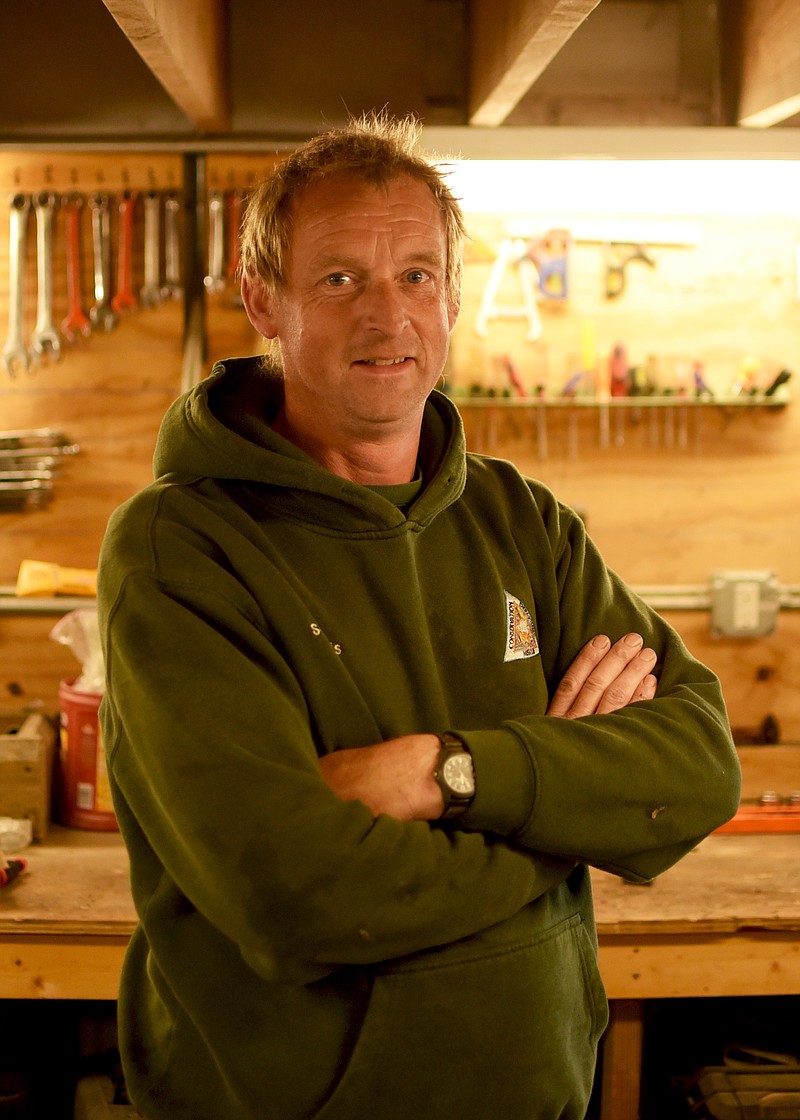The staff of the Missouri Department of Conservation wear many different hats throughout the year. But like Sam Purkis, resource management technician, the spring brings something new to fix.
Purkis has "always been into conservation" even though he didn't get his start in his career in the field. Born in the Isle of Wight, the second-most populous island in England, his family traveled around the Yorkshire border before moving to Scotland when he was 10.
"It's taken me a long time to realize that if I had a place to identify with most, it's actually somewhere I've never lived," Purkis said. "It was Yorkshire. My mum and her family are from there, so it's the culture I identify with."
When living in Scotland, he was involved in forestry work, getting his degree in forestry and worked in jobs similar to conservation work. He got involved in work similar to his job today through the Scotish Wildlife Trust, a conservation charity.
After moving to Missouri in 2015 and doing tree removal work in Columbia, he got his first job with MDC working at Whetstone Creek Conservation Area, managing conservation areas and the regulation of the bird, fish, game, forestry and wildlife resources.
"(Conservation work) is a little bit different (in the U.S.)," Purkis said. "My work in the U.K. had little to do with big mammals and hunting/fishing. I enjoy aspects of both, like that (the Missouri Department of Conservation) has outreach and works with schools."
Work as a management technician starts early, with 8 a.m.-5 p.m. days. Purkis collects equipment needed for the day at Eagle Bluffs Conservation Area in Columbia before heading to conservation areas to get to work, from Little Dixie Lake Conservation Area in Fulton to Robert M. White Conservation Area near Mexico.
He is accompanied by a team of four to five people, depending on the time of the year, that clean trash and restrooms, fix signs and other structures, and maintain certain areas on conservation sites, such as the Rocky Fork Lakes Shooting Range in Hallsville.
"We've got a good team at Eagle Bluffs," Purkis said. "When it comes to overseeing hourly workers, it feels like a management position, but mostly, it feels like teamwork. It's more of a team feel rather than being in charge of anybody. Like with chainsaw work - what we do requires us to be a team."
These days, Purkis and his team have been repairing sections of the multi-purpose trail on Rudolf Bennett Conservation Area near Higbee, hauling a tractor and mower around the region to maintain the field service trails. His goal is to finish it as soon as possible to get onto other projects, although there's a lot to love about each one.
"My favorite aspect is the variety; the job is different every day," Purkis said. "I enjoy mowing the trails and getting out and about. Getting to drive (a tractor and brush hog) around those three to four times a year is fantastic."
His favorite conservation area to experience has been Marshall Diggs, which Purkis said is one of Missouri's more natural conservation areas, with interesting plants and wildlife. It speaks to his passion for maintaining habitats in their natural form, whether it be in the U.K. or the U.S.
"I would like people to understand how important the habitat work is that we do, I don't think it's obvious how degraded our countryside is and how little habitat is left," he said. "The work to maintain and improve areas for wildlife is why I have always worked in conservation."

